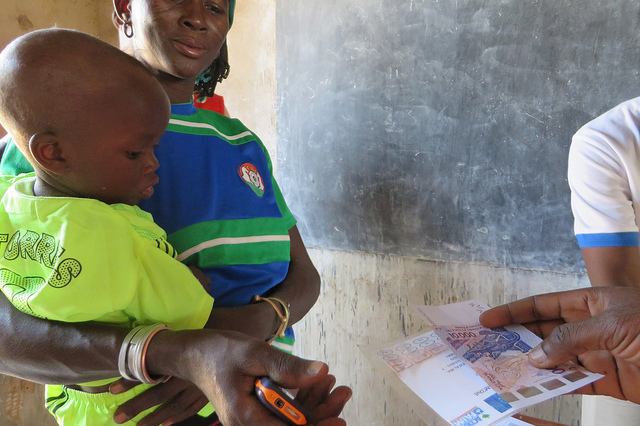Cash Transfers and Climate-Resilient Development: Evidence from Zambia’s Child Grant Programme
Kathleen Lawlor, Sudhanshu Handa, David Seidenfeld and the Zambia Cash Transfer Evaluation Team
UNICEF Office of Research
Sub-Saharan African countries are already experiencing the impacts of weather variability, and will continue to suffer from extensive droughts, flooding and heat waves over the coming decades. While these countries will be some of the hardest hit places on earth, they are some one of the poorest – a large amount of the population lives in remote areas with little capacity to cope with such external shocks. Their livelihood is based on agricultural work and dependent on intermittent rainfalls to ensure high crop yields. As such, climate change is a direct threat to rural communities’ survival. As a response measure to the poverty and vulnerability trap that the adverse effects of climate change may induce, Zambia has developed a child grant programme, that is a large social protection scheme that provides monthly cash transfers to poor families with children under five years of age. Studies have showed that cash transfers can support adaptation and development through food production and rural enterprises. Vulnerable families are offered the possibility to invest money in initiatives that enhance job opportunities that in turn secure income and food on the table. Perhaps most importantly, families do not have to split up and leave their communities and homes to migrate to find work.
The authors of the article underline the importance of cash transfers in fostering climate resilience and shock coping as a means of self-help. Cash transfers facilitate individual autonomy and agency, improving the livelihood of poor families today but also in the future.
 Image credit: European Commission DG ECHO (CC BY-ND 2.0). Flickr.com
Image credit: European Commission DG ECHO (CC BY-ND 2.0). Flickr.com
Chanelle Andrén is a volunteer UK Climate Change and Migration Coalition and writes the weekly round up of new research on climate change, migration and displacement. Her background is in International Human Rights Law with specialisation in ‘Just Transitions’.


